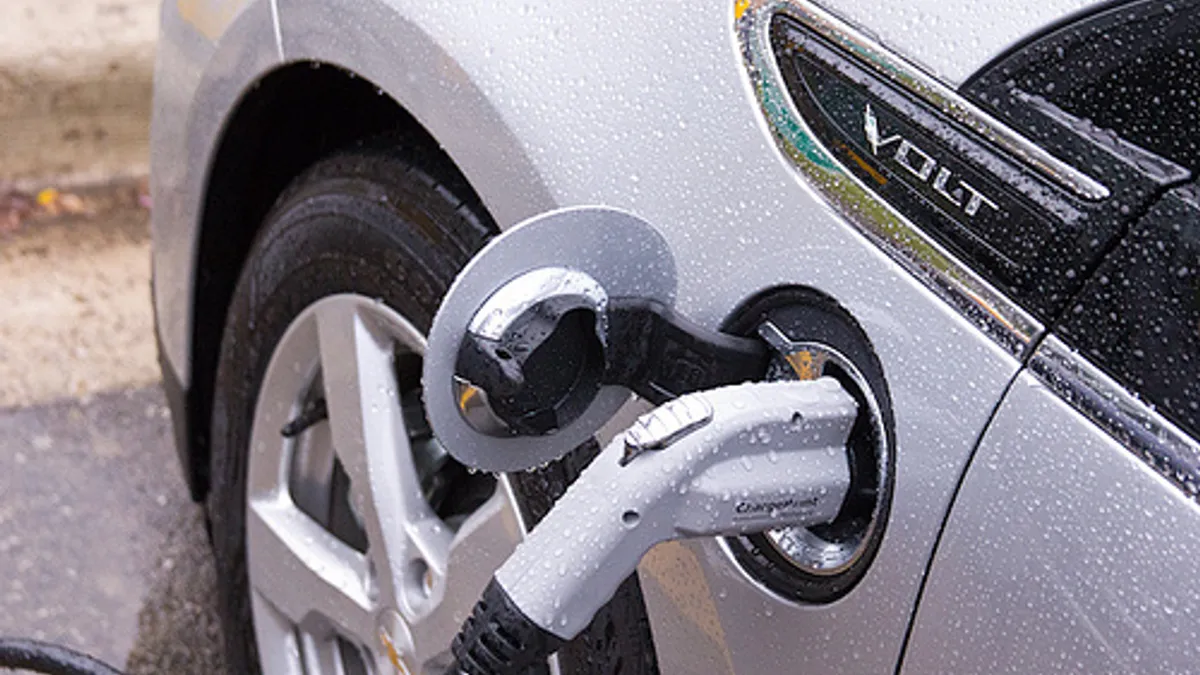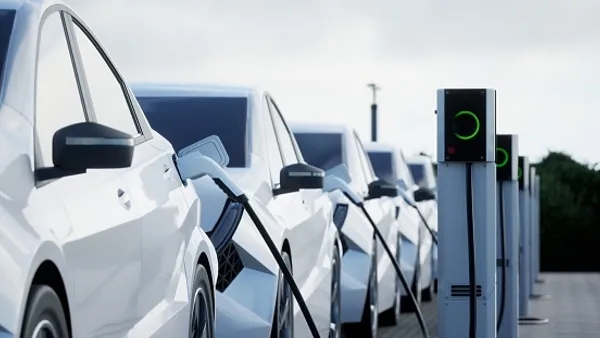Dive Brief:
- Pacific Gas & Electric has proposed a three-year phased in approach to building 7,500 electric vehicle charging stations in California, a scaled-back version of its previous plan to built 25,000 stations, Greentech Media reports.
- The proposal, filed Oct. 12 with state regulators, has two paths for state regulators to evaluate. A compliance option would build 2,510 charging stations for $87 million. The enhanced, three year option, would see the utility install 2,510 in the first two years, and 7,500 by the end of three. That preferred option would cost $222 million and in both cases costs would be recovered through the rate base.
- When the California Public Utilities Commission rejected PG&E's proposal in October, it instead directed the utility to begin charger deployment by constructing 2,500 stations in a two-year pilot program. Opponents of the plan say while PG&E's new proposal calls for fewer stations, it keeps intact problematic ideas about ratebasing charging stations and doesn't address competition questions raised by third party charging vendors and installers.
Dive Insight:
California regulators last month pumped the brakes on PG&E's wide-scale EV charging station plan, telling it to begin with a pilot program like the other California IOUs instead of going ahead with 25,000 new installers immediately.
Earlier this month, the utility filed its revised plan, but critics say the compliance filing keeps in place some problematic wording that many stakeholders in the regulatory proceeding had originally opposed.
Andrea Deveau, executive director of the Silicon Valley advocacy group TechNet, told Greentech Media that PG&E "exploited the phase-in request of the PUC and in essence just phased in what their original proposal was ... This [proposal] didn’t change anything; it just added an element of smoke and mirrors.”
PG&E filed a compliance plan to construct about 2,500 charging stations in two years, as regulators recommended, but also filed a preferred three-year phased-in plan that called for triple that number of stations.
Critics point out costs appear to be rising. GTM reports the 7,500 stations the utility wants to build would cost $222 million. That's about $29,000 per station, or $3,000 more per station than the 25,000-charger station proposal. PG&E's original plan would have cost more than $650 million.
Privately-funded charging stations usually cost about $7,000 to build, but PG&E's plan would call for the stations to be included in the utility's rate base. The proposal also gives the utility control over what technologies and vendors are used, though PG&E said it is committed to a competitive process.
Charging technology vendors encouraged the utility to evaluate allowing customers to choose and operate charging equipment, like the other two California IOUs have proposed.
State regulators will hear testimony on the PG&E charging docket through Nov. 16, and GTM reports evidentiary hearings are slated for February, with a decision expected in June.














